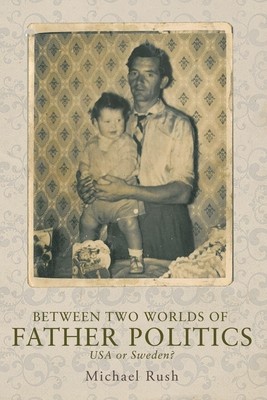
- We will send in 10–14 business days.
- Author: Michael Rush
- Publisher: Manchester University Press
- ISBN-10: 0719091896
- ISBN-13: 9780719091896
- Format: 15.8 x 23.4 x 1.8 cm, kieti viršeliai
- Language: English
- SAVE -10% with code: EXTRA
Reviews
Description
The essential message of the 'two regimes' model is that the social politics of fatherhood have taken on a global significance and that the USA and Sweden represent two ends on an international continuum of ways of understanding fatherhood. The book represents America and Sweden as divergent and internationally influential 'father regimes' or as 'two worlds' of fatherhood. The key selling points of the two regimes model are its topicality, originality, its global appeal, and its particularised appeal to readers in the USA, the Nordic countries, Great Britain, Ireland, the European Union, Japan and China. The book offers students a comparative analytical framework for ways of thinking about fatherhood and new insights into why some welfare states have 'father-friendly' social policies and why others don't. The book makes an original contribution to the growing fields of welfare regime and gender studies by linking the epochal decline of patriarchal fatherhood to welfare state
expansion over the course of the 20th century. In this way, the book raises increasingly relevant questions about gender equality and the global legitimacy of the rule of fathers' over boys and girls. The book will be of interest to students and academics in the fields of social policy, gender studies, sociology, family policy and child-development and especially to those interested in the field of welfare regime theory. As well raising questions about the legitimacy of religiously inspired neo-patriarchy the book offers new theories about gender equality as a driver of welfare state development.
EXTRA 10 % discount with code: EXTRA
The promotion ends in 21d.16:14:50
The discount code is valid when purchasing from 10 €. Discounts do not stack.
- Author: Michael Rush
- Publisher: Manchester University Press
- ISBN-10: 0719091896
- ISBN-13: 9780719091896
- Format: 15.8 x 23.4 x 1.8 cm, kieti viršeliai
- Language: English English
The essential message of the 'two regimes' model is that the social politics of fatherhood have taken on a global significance and that the USA and Sweden represent two ends on an international continuum of ways of understanding fatherhood. The book represents America and Sweden as divergent and internationally influential 'father regimes' or as 'two worlds' of fatherhood. The key selling points of the two regimes model are its topicality, originality, its global appeal, and its particularised appeal to readers in the USA, the Nordic countries, Great Britain, Ireland, the European Union, Japan and China. The book offers students a comparative analytical framework for ways of thinking about fatherhood and new insights into why some welfare states have 'father-friendly' social policies and why others don't. The book makes an original contribution to the growing fields of welfare regime and gender studies by linking the epochal decline of patriarchal fatherhood to welfare state
expansion over the course of the 20th century. In this way, the book raises increasingly relevant questions about gender equality and the global legitimacy of the rule of fathers' over boys and girls. The book will be of interest to students and academics in the fields of social policy, gender studies, sociology, family policy and child-development and especially to those interested in the field of welfare regime theory. As well raising questions about the legitimacy of religiously inspired neo-patriarchy the book offers new theories about gender equality as a driver of welfare state development.


Reviews